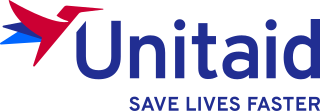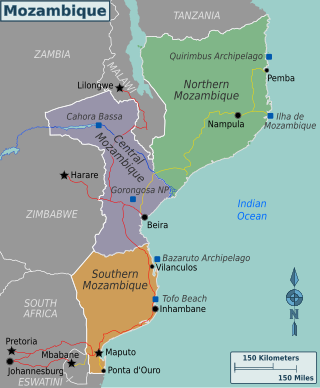Related Research Articles

Médecins Sans Frontières, also known as Doctors Without Borders, is a charity that provides humanitarian medical care. It is a non-governmental organisation (NGO) of French origin known for its projects in conflict zones and in countries affected by endemic diseases. The organisation provides care for diabetes, drug-resistant infections, HIV/AIDS, hepatitis C, tropical and neglected diseases, tuberculosis, vaccines and COVID-19. In 2019, the charity was active in 70 countries with over 35,000 personnel; mostly local doctors, nurses and other medical professionals, logistical experts, water and sanitation engineers, and administrators. Private donors provide about 90% of the organisation's funding, while corporate donations provide the rest, giving MSF an annual budget of approximately US$1.63 billion.

James Jude Orbinski is a Canadian physician, humanitarian activist, author, and scholar in global health. Dr. Orbinski began his role as principal of Massey College at the University of Toronto in the 2024-2025 academic year, where he is also Full Professor in the Department of Family and Community Medicine in the Temerty Faculty of Medicine, and is cross-appointed to the Munk School of Global Affairs and Public Policy, as well as the Dalla Lana School of Public Health,. Previously a professor in the Faculty of Health Science at York University, Dr. Orbinski founded the Dahdaleh Institute of Global Health Research.
An advance market commitment (AMC) is a promise to buy or subsidise a product if it is successfully developed. AMCs are typically offered by governments or private foundations to encourage the development of vaccines or treatments. In exchange, pharmaceutical companies commit to providing doses at a fixed price. This funding mechanism is used when the cost of research and development is too high to be worthwhile for the private sector without a guarantee of a certain quantity of purchases.

Danaher Corporation is an American global conglomerate founded in 1984 by brothers Steven and Mitchell Rales. Headquartered in Washington, D.C., the company designs, manufactures, and markets medical, industrial, and commercial products and services. Danaher was among the first companies in North America to adopt Kaizen principles, a Japanese lean manufacturing philosophy of continuous improvement and efficiency. The company held $78.5 billion in assets as of 2024.
The Campaign for Access to Essential Medicines is an international campaign started by Médecins Sans Frontières (MSF) to increase the availability of essential medicines in developing countries. MSF often has difficulties treating patients because the medicines required are too expensive or are no longer produced. Sometimes, the only drugs available are highly toxic or ineffective, and they often have to resort to inadequate testing methods to diagnose patients.

James Packard Love is the director of Knowledge Ecology International, formerly known as the Consumer Project on Technology, a non-governmental organization with offices in Washington, D.C., and Geneva, that works mainly on matters concerning knowledge management and governance, including intellectual property policy and practice and innovation policy, particularly as they relate to health care and access to knowledge.
Dignitas International is a medical and research organization, which is dedicated to improving access to lifesaving treatment and care for HIV, TB and related diseases in resource-limited settings. Dignitas was founded by James Orbinski and James Fraser, both formerly with Médecins Sans Frontières, with an underlying belief in human dignity.

Unitaid is a global health initiative that works with partners to bring about innovations to prevent, diagnose and treat major diseases in low- and middle-income countries, with an emphasis on tuberculosis, malaria, and HIV/AIDS and its deadly co-infections. Founded in 2006, the organization funds the final stages of research and development of new drugs, diagnostics and disease-prevention tools, helps produce data supporting guidelines for their use, and works to allow more affordable generic medicines to enter the marketplace in low- and middle-income countries. Hosted by the World Health Organization (WHO) in Geneva, Unitaid was established by the governments of Brazil, Chile, France, Norway and the United Kingdom.

Mozambique is a country particularly hard-hit by the HIV/AIDS epidemic. According to 2008 UNAIDS estimates, this southeast African nation has the 8th highest HIV rate in the world. With 1,600,000 Mozambicans living with HIV, 990,000 of which are women and children, Mozambique's government realizes that much work must be done to eradicate this infectious disease. To reduce HIV/AIDS within the country, Mozambique has partnered with numerous global organizations to provide its citizens with augmented access to antiretroviral therapy and prevention techniques, such as condom use. A surge toward the treatment and prevention of HIV/AIDS in women and children has additionally aided in Mozambique's aim to fulfill its Millennium Development Goals (MDGs). Nevertheless, HIV/AIDS has made a drastic impact on Mozambique; individual risk behaviors are still greatly influenced by social norms, and much still needs to be done to address the epidemic and provide care and treatment to those in need.
The Xpert MTB/RIF is a cartridge-based nucleic acid amplification test (NAAT) for rapid tuberculosis diagnosis and rapid antibiotic sensitivity test. It is an automated diagnostic test that can identify Mycobacterium tuberculosis (MTB) DNA and resistance to rifampicin (RIF). It was co-developed by the laboratory of Professor David Alland at the University of Medicine and Dentistry of New Jersey (UMDNJ), Cepheid Inc. and Foundation for Innovative New Diagnostics, with additional financial support from the US National Institutes of Health (NIH).
Mark Harrington is an HIV/AIDS researcher, a staunch activist for HIV/AIDS and tuberculosis awareness, and the co-founder and policy director of the Treatment Action Group (TAG). After graduating from Harvard University in 1983, Harrington spent time exploring and did not commit to one specific career. When the AIDS epidemic became personal for Harrington, and close friends were being infected with HIV, he decided to take action and joined the group, AIDS Coalition to Unleash Power or ACT UP. As part of the Treatment and Data Committee of ACT UP, Harrington fostered relationships with government officials associated with AIDS research. Eventually differences in opinions on how to best advocate for HIV/AIDS research led to Harrington and other members of ACT UP leaving to start their own group, TAG. With TAG, Harrington was able to create influential and meaningful policy regarding HIV/AIDS research and he worked closely with the NIH, WHO, and other government organizations. Over the years Harrington has distinguished himself as an adept scientist and reputable researcher in his own right. Currently he is published in multiple scientific journals and continues to be an advocate for those with HIV and TB around the world.
The cost of HIV treatment is a complicated issue with an extremely wide range of costs due to varying factors such as the type of antiretroviral therapy and the country in which the treatment is administered. The first line therapy of HIV, or the initial antiretroviral drug regimen for an HIV-infected patient, is generally cheaper than subsequent second-line or third-line therapies. There is also a great variability of drug prices among low, middle, and high income countries. In general, low-income countries have the lowest cost of antiretroviral therapy, while middle- and high-income tend to have considerably higher costs. Certain prices of HIV drugs may be high and difficult to afford due to patent barriers on antiretroviral drugs and slow regulatory approval for drugs, which may lead to indirect consequences such as greater HIV drug resistance and an increased number of opportunistic infections. Government and activist movements have taken efforts to limit the price of HIV drugs.
The Medicines Patent Pool (MPP) is a Unitaid-backed international organisation founded in July 2010, based in Geneva, Switzerland. Its public health driven business model aims to lower the prices of HIV, tuberculosis and hepatitis C medicines and facilitate the development of better-adapted HIV treatments through voluntary licensing and patent pooling. Its goal is to improve access to affordable and appropriate HIV, hepatitis C and tuberculosis medicines in low- and middle-income countries (LMIC). In May 2020, the MPP become an implementing partner of the WHO's Covid-19 Technology Access Pool (C-TAP).

Cepheid is an American molecular diagnostics company that is a wholly owned subsidiary of Danaher Corporation. Its systems automate traditional nucleic acid tests. The tests can be used to identify and analyze pathogens and genetic disorders. Cepheid sells clinical tests for healthcare-associated infections, infectious diseases, sexual health, oncology and genetics.
Access to medicines refers to the reasonable ability for people to get needed medicines required to achieve health. Such access is deemed to be part of the right to health as supported by international law since 1946.

Vaccine development and production is economically complex and prone to market failure. Many of the diseases most demanding a vaccine, including HIV, malaria and tuberculosis, exist principally in poor countries. Pharmaceutical firms and biotechnology companies have little incentive to develop vaccines for these diseases because there is little revenue potential. Even in more affluent countries, financial returns are usually minimal and the financial and other risks are great.
The TRIPS Agreement waiver is a joint intervention communication by South Africa and India to the TRIPS council of the World Trade Organization (WTO) on 2 October 2020.

The Initiative for Medicines, Access, and Knowledge, known as I-MAK, is a U.S.-based global 501(c)(3) organization that advocates in the public interest for affordable access to medicines, and a medicines system that is more inclusive of patients and the public.
Fatima Hassan is a South African human rights lawyer who works in the field of health justice.
Phumeza Tisile is a healthcare activist from South Africa who advocates for making tuberculosis medication inexpensive and widely available. Tisile survived extensively drug-resistant tuberculosis (XDR-TB), enduring three years and 8 months of treatment. Tisile's initial misdiagnoses led to months of incorrect treatment, which caused her to become deaf. As an activist, Tisile advocates for improved access to tuberculosis (TB) diagnosis and treatment, improved counseling for patients, research into better treatments, and elimination of TB stigma.
References
- ↑ Harrington, Mark. Interview with Sarah Schulman and Jim Hubbard. ACTUP Oral History Project. 16 February 2005. MIX: The New York Lesbian & Gay Experimental Film Festival. 11 December 2005 <http://www.actuporalhistory.org/interviews/images/harrington.pdf Archived 2021-04-24 at the Wayback Machine >.
- ↑ TAG at 10: 1992 <http://www.aidsinfonyc.org/tag/tagatTen.html#1992 Archived 2007-09-28 at the Wayback Machine >.
- ↑ Kolata, Gina (12 September 1994). "F.D.A. Debate on Speedy Access to AIDS Drugs Is Reopening". New York Times. Retrieved 22 September 2015.
- ↑ TAG at 10 Timeline < "TAG at 10: 1992-2002". Archived from the original on 2007-09-28. Retrieved 2007-05-06.
{{cite web}}: CS1 maint: unfit URL (link)>. - ↑ TAG TB/HIV Press Release < "TAG TB/HIV Project grant from Gates Foundation". Archived from the original on 2007-07-03. Retrieved 2007-05-06.
{{cite web}}: CS1 maint: unfit URL (link)> - ↑ "No profiteering on COVID-19 drugs and vaccines, says MSF". Médecins Sans Frontières (MSF) International.
- ↑ "Covid-19: How South Africa will test for the virus". www.msn.com.
- ↑ "Treatment Action Group Statement on the High Price of Cepheid's Xpert Test for COVID-19". Treatment Action Group.
- ↑ Silverman, Ed (20 June 2024). "Doctors Without Borders is closing its widely regarded access-to-medicines campaign". STAT News.
- ↑ Harrington, Mark (20 June 2024). "An Open Letter to Médecins Sans Frontières — Urgent Call to Reverse the Devastating Decision to Shutter the MSF Access Campaign". Treatment Action Group.
- ↑ Harrington, Mark (20 June 2024). "An Open Letter to Médecins Sans Frontières — Urgent Call to Reverse the Devastating Decision to Shutter the MSF Access Campaign". Treatment Action Group.
- ↑ About TAG < "About Treatment Action Group". Archived from the original on 2007-04-05. Retrieved 2007-05-06.
{{cite web}}: CS1 maint: unfit URL (link)>. - ↑ "August 6, 2009 Gay City News | PDF | Hate Crimes | Homosexuality". Scribd.
- ↑ New Yorker magazine
- ↑ "Why I Think How to Survive a Plague Is Going to be Huge". HuffPost. September 21, 2012.